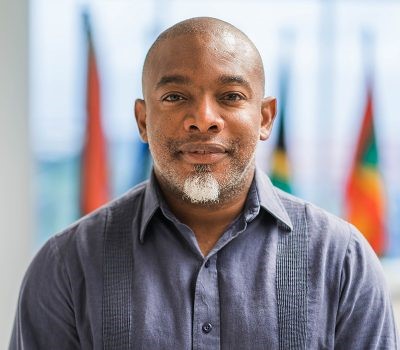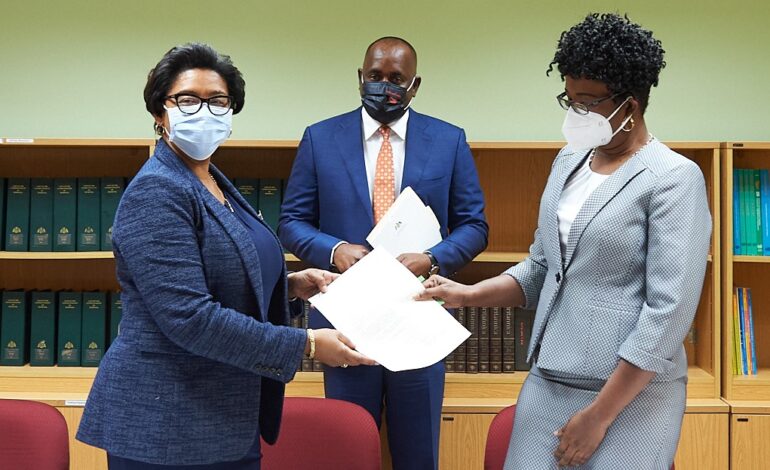
Energy is among the top strategic issues shaping the global agenda; the uncertainty and impact of energy and commodity price volatility has now established itself as the number‑one issue for energy leaders worldwide.
A history of unpredictable global oil price spikes has consistently impacted negatively on the sustainability of economic growth in the majority of Caribbean countries; when oil prices are high, as they currently are, the economic challenges that are being faced by the region are typically aggravated and exacerbated. Unpredictability in oil price, resulting from rapid changes (up or down) over short time spans, is bad news because oil, and more broadly fossil fuel, is the commodity that is central and critical to the operation of a majority of economies, and the potential wealth generating opportunities, within the region. As commerce thrives best when the costs of doing business can be anticipated and hedged against, unexpected swings in oil price continue to destabilize the business environment within the countries. Though lower energy prices, at times, provide temporarily relief to consumers, the economy does not do well “when the rug is unpredictably, pulled from under its feet” by the constant large and unexpected changes in the cost of energy.
A result of this situation is that the cost of energy within the region has been mostly high and persistently unpredictable over the past two‑and‑a‑half decades, which has eroded competitiveness.In turn, these problems have contributed to, among other things, the region’s high cost of doing business, have increased external sector vulnerabilities, and have undercut growth in many economies within the region. In particular, high and generally unpredictable oil prices have consistently compromised the efforts of CARICOM Governments to stimulate economic growth in the productive sectors, such as: agriculture and fisheries; tourism and services; and industries.
It is no surprise, therefore that region continues to recognize the economic‑value of alternative and sustainable energy options, especially from cost‑effective, indigenous renewable energy sources, that are predictable in pricing and supply. It is no surprise, also, that the region is exercising a leadership role within a global marketplace that is demanding cleaner energy, all precipitated by better and cheaper technologies and an international agenda that promotes sustainable development and climate management.
The region’s aspirations are among the highest, several Member States’ target of 100% carbon neutrality by the year 2030. Despite a variety of opinions and analyses of the target, the Caribbean countries are firmly committed to an ambitious energy transition.
But what might corporate entities stand to gain from the development and implementation of sustainable energy projects?
The fact is that low-carbon energy transitions are already happening, globally, in many countries. This is, oftentimes, due to economic factors inasmuch as it is accelerated by environmental and climate change policies. Many of the technologies – from utility‑scale and rooftop solar, to utility-scale wind, to battery storage, to electric vehicles, have already taken hold globally and are increasingly penetrating CARICOM markets.
There are new, profitable business opportunities for Caribbean companies that opt to participate in the sustainable energy sector. The emerging paradigm is one wherein the electricity sector is no longer focused on establishing large central power generation plants and the laying of wires. This is being replaced with an architecture that is encouraging and rewarding experimentation and product development among multitude players within a vibrant, robust marketplace. The effect is expected to be transformative, portending enormous improvements in energy efficiency and, with them, significant reductions in carbon emissions and improvement in reliability, including resilience to the impacts of natural disasters and other externalities on the conventional grid. This is part of a more general resilience model for the energy sector wherein resilience to multiple vulnerabilities, including the effects of weather and climate, is being simultaneously enhanced whilst countries transition to “low‑carbon” systems. Within the emerging energy future for the Caribbean, many companies are already increasing the profitability and improving the environmental, social and governance consciousness of their businesses by developing innovative products, offering new services, and creating more jobs.
There is cognizance that many businesses do not possess the internal expertise nor the financial resources to undertake the gamut of actions that are necessary to conceive, develop and implement, successfully, a sustainable energy project. This is part of the raison d’être for the Caribbean Centre for Renewable Energy and Energy Efficiency (CCREEE), which is a Barbados‑based institution of CARICOM that was established by the Conference of Heads of Government in 2017.
The Centre, in November 2020, established a Project Preparation Facility (PPF) to, among other things, provide project preparation assistance to the regional private sector. The PPF deliberately targets the “most significant barrier” that is continuing to impede the ability of Caribbean businesses to confidently and successfully pursue projects and businesses in renewable energy and energy efficiency; that is, an unavailability of technical and financial resources to develop ideas and concepts into “bankable” outcomes that can secure the investment and other financing that is necessary for their implementation.
Through a combination of standard and bespoke services, the PPF is already delivering preparation assistance to projects in Antigua and Barbuda, Barbados, Belize, Guyana, St. Kitts and Nevis, and Suriname.






